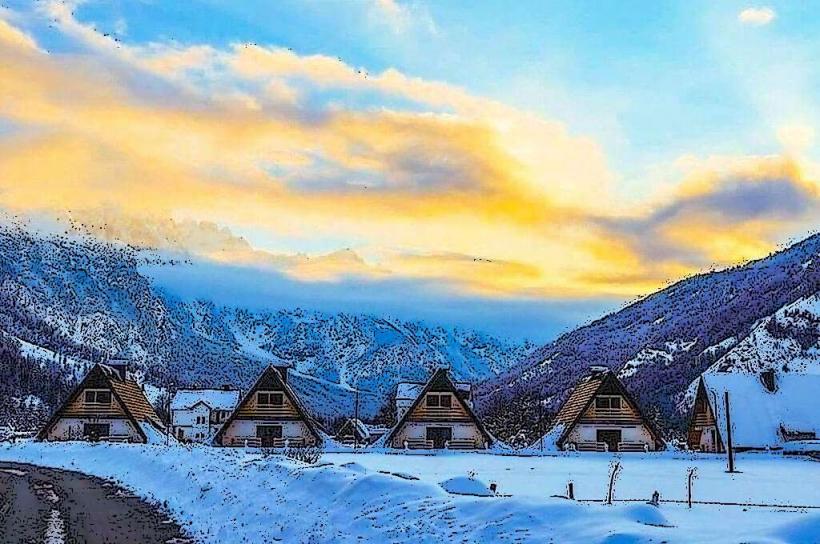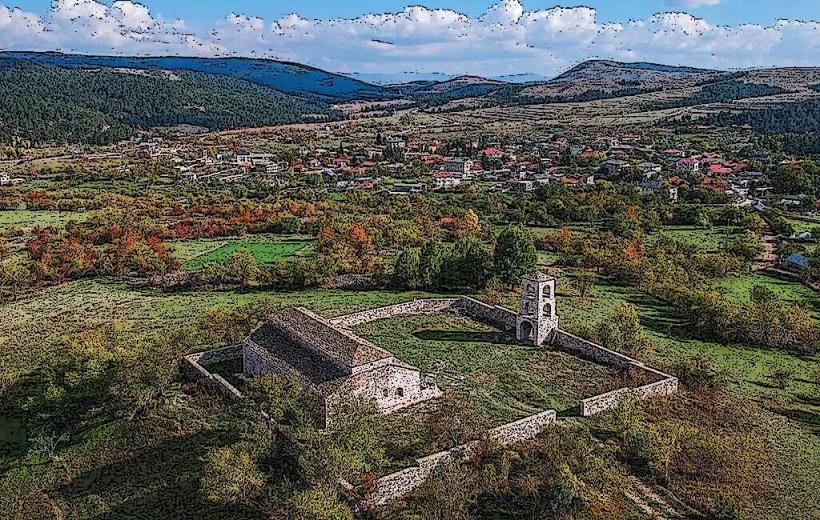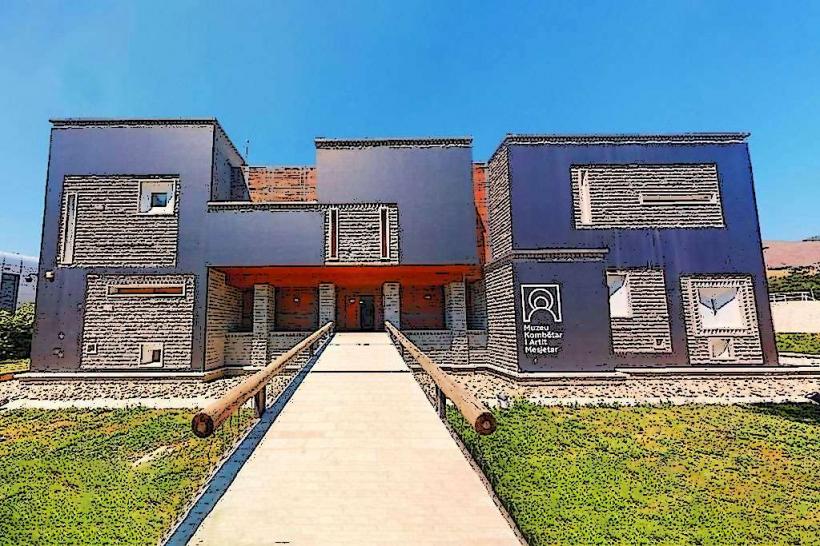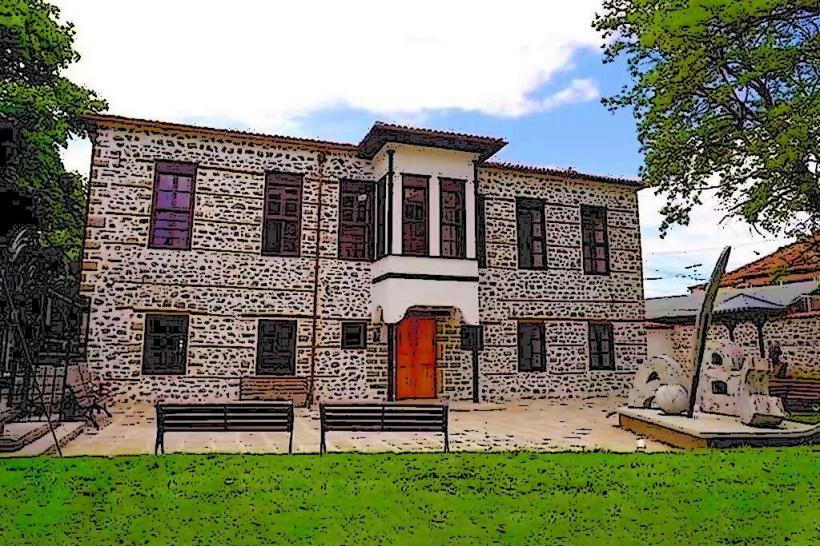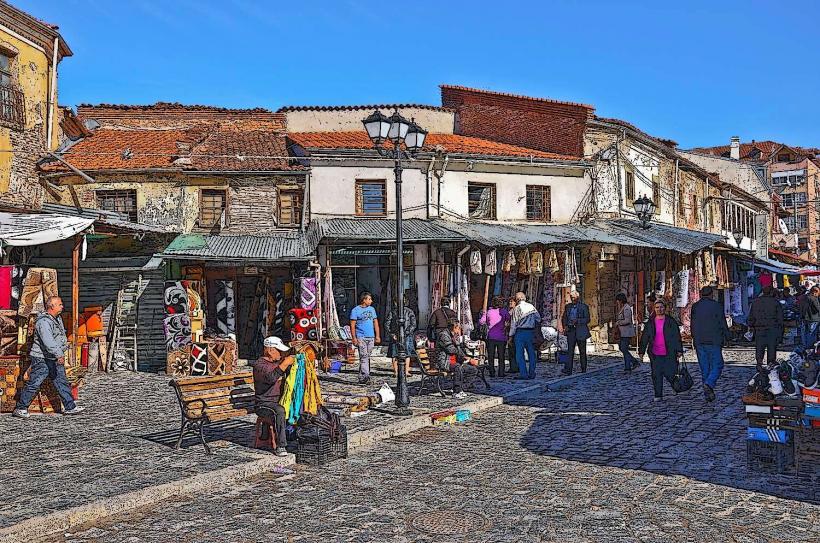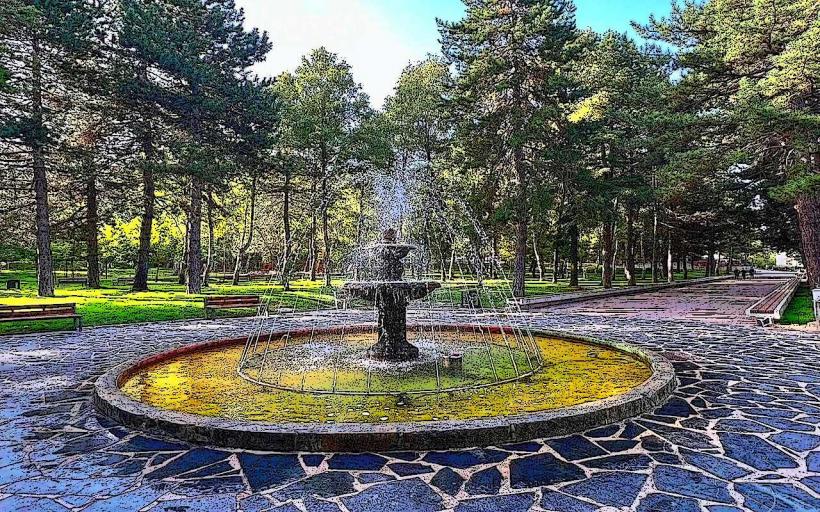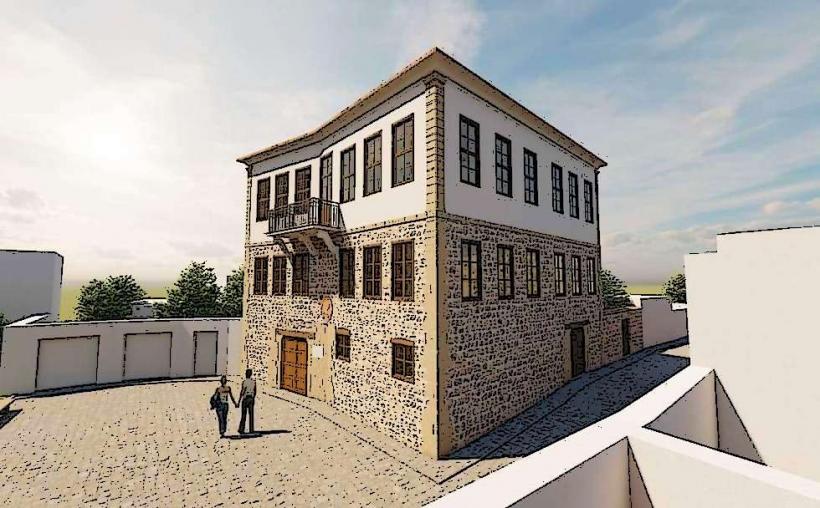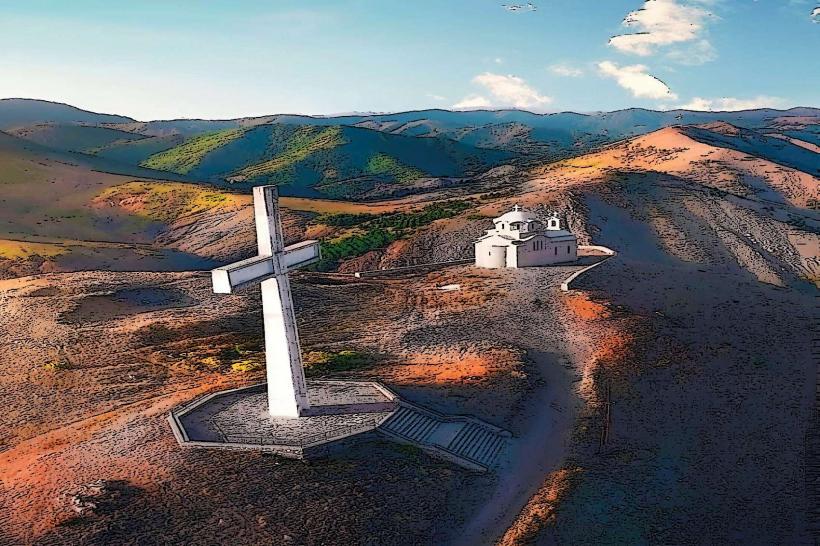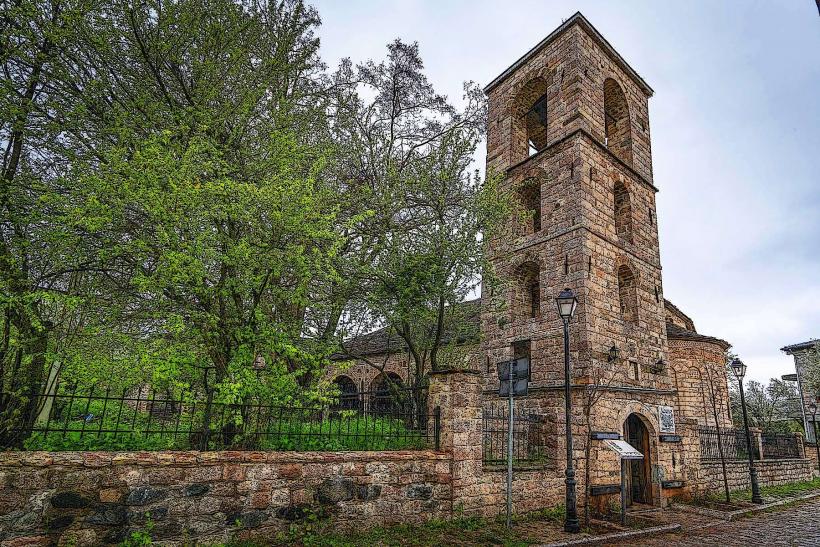Information
Landmark: French Military CemeteryCity: Korce
Country: Albania
Continent: Europe
French Military Cemetery, Korce, Albania, Europe
The French Military Cemetery is located in the southeastern outskirts of Korçë, Albania. It serves as a memorial and final resting place for 1,240 French soldiers who died on the Balkan Front during World War I.
Visual Characteristics
The cemetery is characterized by a symmetrical, rectangular layout with long rows of uniform white stone crosses and several headstones featuring the Islamic crescent for North African colonial troops. A central gravel path leads to a large stone monument and a flagpole. The site is enclosed by a low stone wall and features manicured grass lawns with precisely spaced cypress and cedar trees.
Location & Access Logistics
The site is located on Rruga e Varrezave Franceze, approximately 1.5 km southeast of the city center. It is accessible by car or taxi via Bulevardi Fan Noli. While there is no formal parking lot, the wide road shoulders allow for vehicle stopping. It is a 20-minute walk from the National Museum of Medieval Art.
Historical & Ecological Origin
The cemetery was established following World War I to consolidate the remains of soldiers from the French Army of the Orient who fell between 1916 and 1918. During this period, Korçë was the center of the "Autonomous Albanian Republic of Korçë," established under French military protection. The cemetery is maintained by the French government.
Key Highlights & Activities
Visitors can walk the grounds to observe the diverse names on the headstones, reflecting the multicultural composition of the French colonial forces, including Zouaves and Tirailleurs. A formal commemorative ceremony is held annually on November 11 (Armistice Day), attended by diplomatic representatives.
Infrastructure & Amenities
The site has no public restrooms or visitor centers. Shade is provided by the perimeter trees. There is no on-site staff, though the grounds are kept locked and are typically opened by a caretaker or upon request during daylight hours. 5G cellular signal is strong and consistent throughout the location.
Best Time to Visit
The cemetery is best visited during daylight hours, specifically in the morning when the sun illuminates the front of the white crosses. Spring and autumn offer the most moderate temperatures for walking the exposed grounds. It is most frequently visited during the week of November 11.
Facts & Legends
A notable feature of the cemetery is the presence of headstones for soldiers from Indochina and North Africa, illustrating the global scale of the conflict. Local historical accounts often highlight the period of French administration in Korçë as a time of significant urban development and stability amidst the chaos of the Great War.
Nearby Landmarks
National Museum of Medieval Art (0.9km Northwest)
Bratko Museum of Oriental Art (1.1km Northwest)
Church of St. Nicholas (1.3km West)
Resurrection of Christ Cathedral (1.6km Northwest)
Morava Mountain Trailhead (1.2km East)

